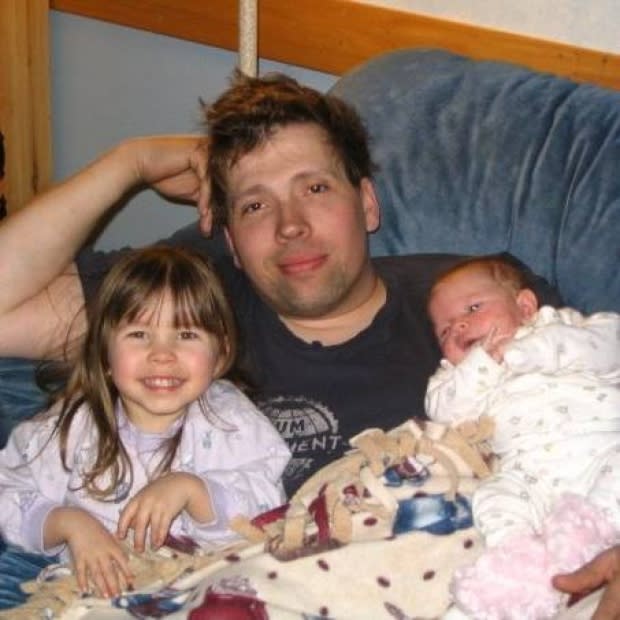Judge dismisses charge against oil company in 2014 death of worker
More than four years after her son died due to a sour gas leak at a well site near Kipling, Sask., Dianne Bunz said she was disappointed to see the third and final charge against his employer dismissed in provincial court.
"Some things you think will never happen," she acknowledged of the circumstances leading to her son's death. "But as an employer, I think you have to look at the worst-case scenario."
Michael Bunz, 38, died from asphyxiation from chemical exposure in 2104. He was employed by oil company Nalco Champion employed at the time.
The trial began last November in Estevan court. Two initial charges — that Nalco had failed to provide the worker with a respirator and that it had failed to ensure a second trained and equipped worker was also present — were dismissed.
'Imaginable, but not reasonably foreseeable'
Nalco faced a third charge of failing to take all the steps to prevent harmful exposure of the worker to a hazardous substance. Judge Lane Wiegers said last Friday that after reviewing the evidence, he was dismissing that third charge.
"Having weighed all of this evidence carefully, I conclude that the potential danger that became a tragic reality in this case was imaginable, but not reasonably foreseeable," he wrote.

Bunz had worked as a contractor selling chemicals to the oil industry. As part of his work, he regularly did testing at well sites.
He was collecting samples, something he had done more than 1,000 times before, when a ball valve failed in two stages, with the second catastrophic failure releasing toxic levels of hydrogen sulphide into the room with him.
While a respirator may have possibly saved Bunz's life, the sour gas release that took Mr. Bunz's life was not reasonably expected, Wiegers said.
Wiegers wrote that much smaller, short-term sour gas exposures were foreseeable and Nalco had appropriate equipment and procedures in place to make sure that these exposures would not exceed the contamination limit.
Bunz was working alone with Nalco's approval, but Wiegers expressed reservations on the question of whether a second worker present at the scene may have helped.
"Mr. Bunz was overwhelmed quickly by H2S and the attempts of two well equipped workers to remove Mr. Bunz from the building were unsuccessful," he said. "Given the nature of the H2S release, it is unlikely Mr. Bunz could have been saved by the presence of a single well-equipped worker."
Difficult trial for everyone, says mother
The trial saw several witnesses testify, including some from Nalco who spoke warmly of Bunz as a hard-working and respected individual. It was clear they were deeply moved by the loss, wrote Wiegers.
Dianne Bunz agreed the trial had been "hard all around," not only for Bunz's family, but for the company's employees and her son's co-workers.
She said she hopes the end result will be companies following Health and Safety guidelines to the letter, to avoid future deaths.
"To me, they need to take it more seriously."

